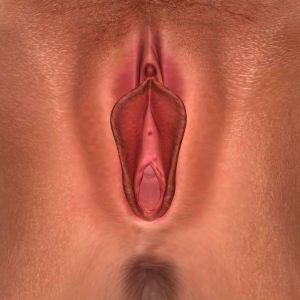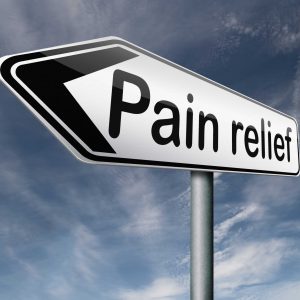Vulval pain or discomfort can be due to Vulvodynia. Many women describe it as a “burning” pain or sensation, and for some women it may present as vulval itch or irritation. By definition, a diagnosis of Vulvodynia is made only when other clinically identifiable causes of vulval pain are excluded, such as visible vulval lesions, vulval cancer or pre-invasive disease (VIN – vulval intraepithelial neoplasia), or neurological disorders.

Vulvodynia may be localised to a particular part of the vulva (e.g. hemi-vulvodynia, clitorodynia, vestibulodynia), or it may be generalised. There is often an area which is associated with the most severe symptoms.
The pain or discomfort may be provoked in some women, and the exacerbating factors may vary. These may include sitting, sexual activity (including penetrative intercourse, masturbation, or foreplay), exercise, or wearing certain types of clothing. In other women, the vulvodynia may be unprovoked. In some women, no exacerbating factors can be identified, but symptoms may be worse at certain times of the day or night. A symptom diary may be helpful as part of the assessment.
After a careful assessment, Dr Ken Law will make a diagnosis of your vulval pain in accordance with the International Society for the Study of Vulvovaginal Diseases (ISSVD) classification. A thorough history and examination is essential to tailor the appropriate treatment plan for women with Vulvodynia. Treatment involves a holistic, multi-disciplinary team approach, and at Dr Ken Law’s vulval pain clinic at Greenslopes, the team involves a gynaecologist, physiotherapist, and a clinical psychologist. We focus not only on the primary site of discomfort and pain, but also holistically on the woman, and the effects and impact of the vulvodynia on her lifestyle, work, and relationship.
A thorough examination including vulvoscopy will be performed, and other vulval conditions such as infection and malignancy are excluded right from the start. Throughout the treatment program, regular follow-up appointments will allow further evaluation of treatment progress, and monitor for the development of new lesions or conditions. The treatment program can then be adjusted accordingly.
 Pudendal Neuralgia
Pudendal NeuralgiaConditions such as Pudendal Neuralgia may cause other symptoms in the body, as well as vulval pain or discomfort. Women with Pudendal Neuralgia often experience pain on sitting, and the pain is classically relieved by standing or lying down. Treatment for Pudendal Neuralgia may help alleviate vulval pain, and therefore it is important to identify possible symptoms and signs of Pudendal Neuralgia, and tailor the treatment program accordingly.
Not uncommonly, women with Vulvodynia may be affected by some degree of sexual dysfunction. In women whose Vulvodynia is provoked by sexual intercourse, their experience of pain during sexual activity may may be so severe that they avoid sexual intercourse altogether. In some women with Vulvodynia, sexual penetration is still possible, but not without pain or discomfort, and sexual intercourse may often need to stop abruptly due to pain. In other women, the burning discomfort may be experienced after sexual penetration, and the pain may last for a variable duration of time after sex – sometimes minutes, but not uncommonly it may be hours or even days.
For the above reasons, women with Vulvodynia often report reduced libido (sex drive), reduced arousal (or inability to achieve orgasm or sexual pleasure), and less interest in sex. They may have increased levels of stress and anxiety, leading to psychological illness including depression. For these reasons, whilst the vulval symptoms are not primarily psychological, an assessment and ongoing input from a clinical psychologist is of utmost value in the treatment program for women with Vulvodynia.
Vulvodynia may also be associated with pelvic floor muscle dysfunction, especially in women with Pudendal Neuralgia. Physiotherapy with desensitisation of the pelvic floor muscles may be helpful, and medications may be a useful adjunct in the treatment program.
Dr Ken Law is a gynaecologist in Brisbane with a special interest in Vulval pathology and Vulvodynia. To make an appointment to see Dr Ken Law and his multi-disciplinary team at the Brisbane Vulval Clinic, please call (07) 3188 5000, or complete the online form on the top of the screen.
